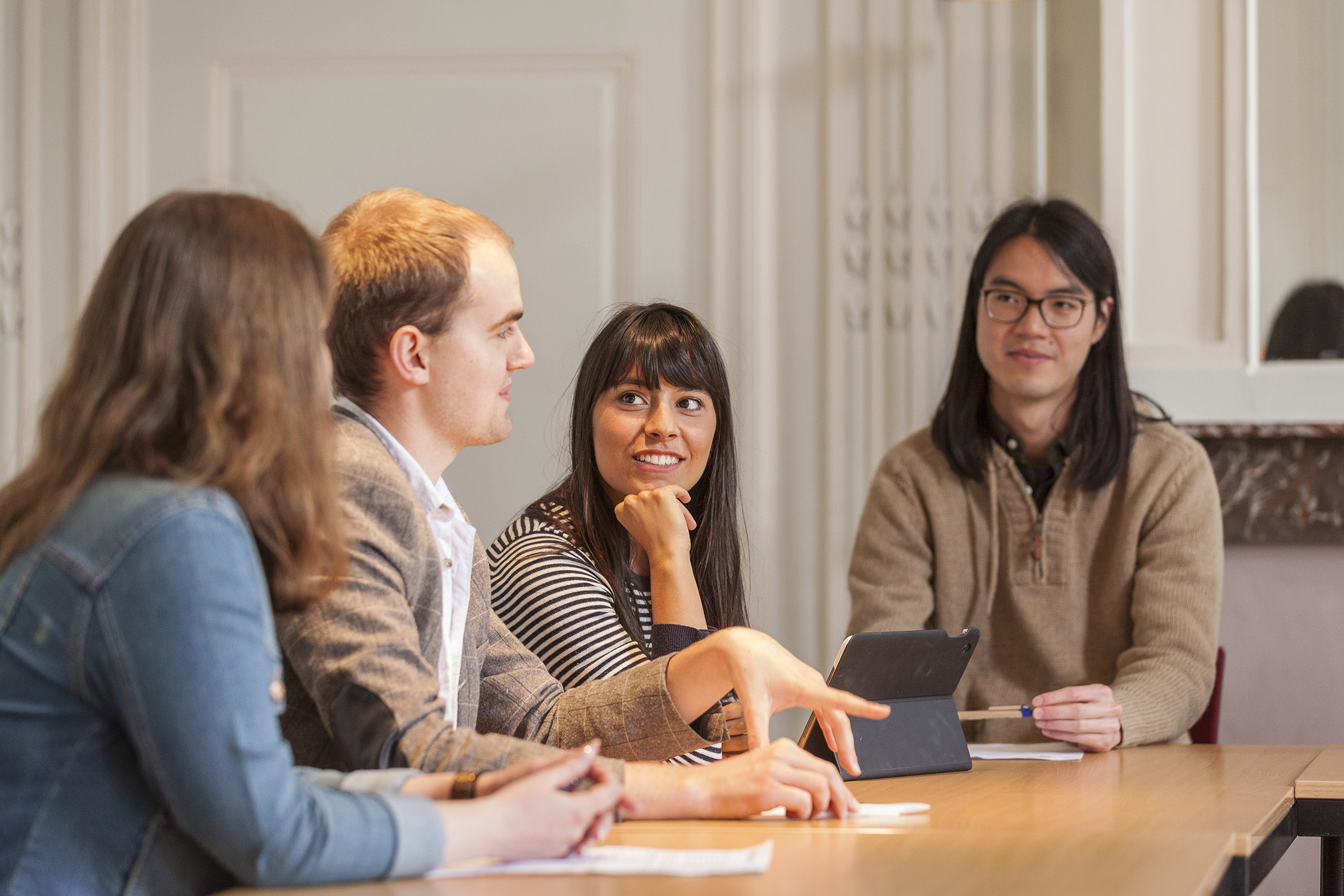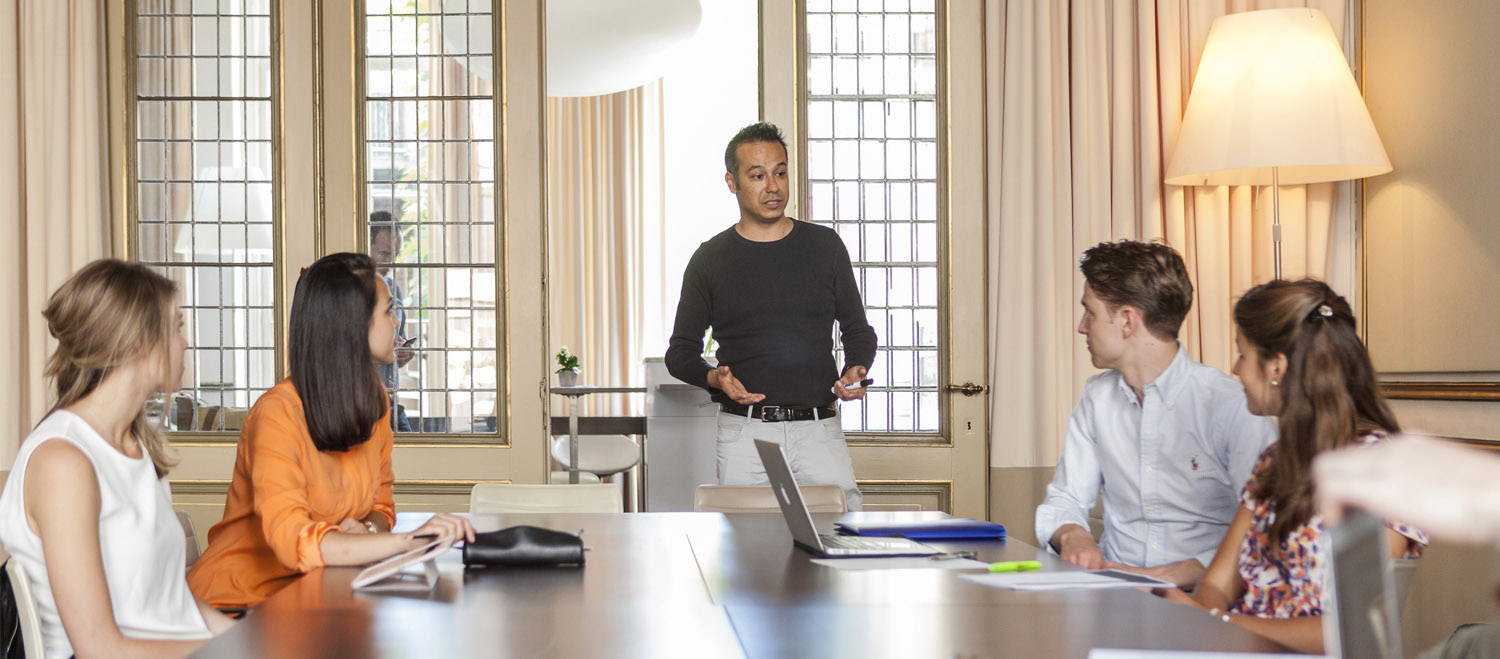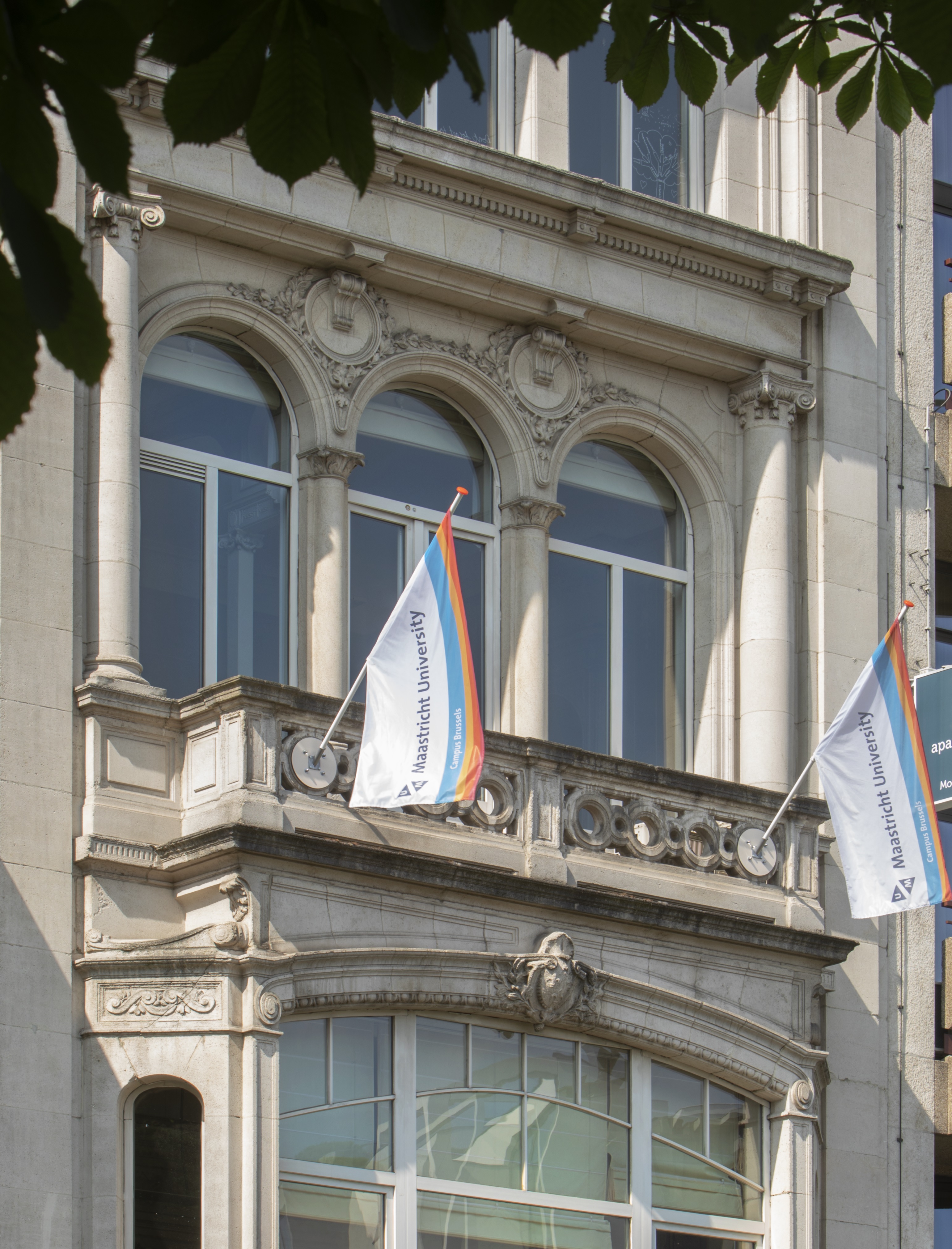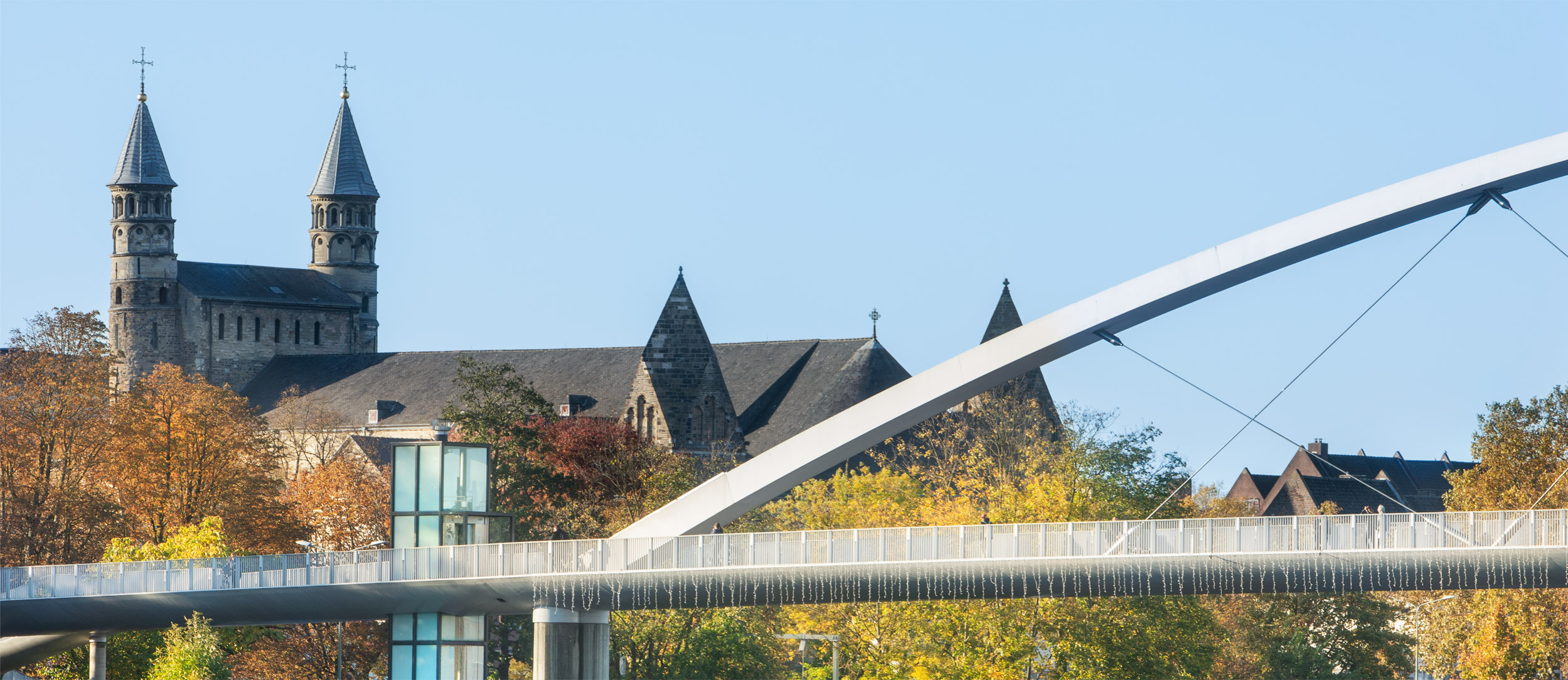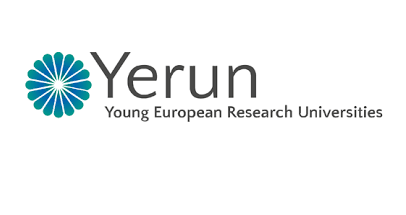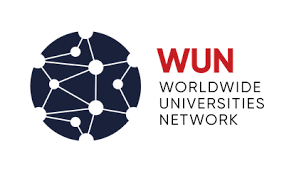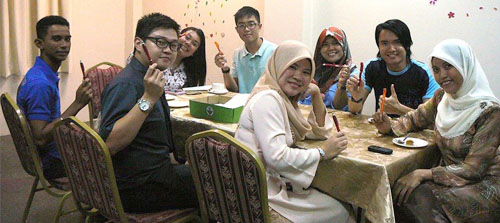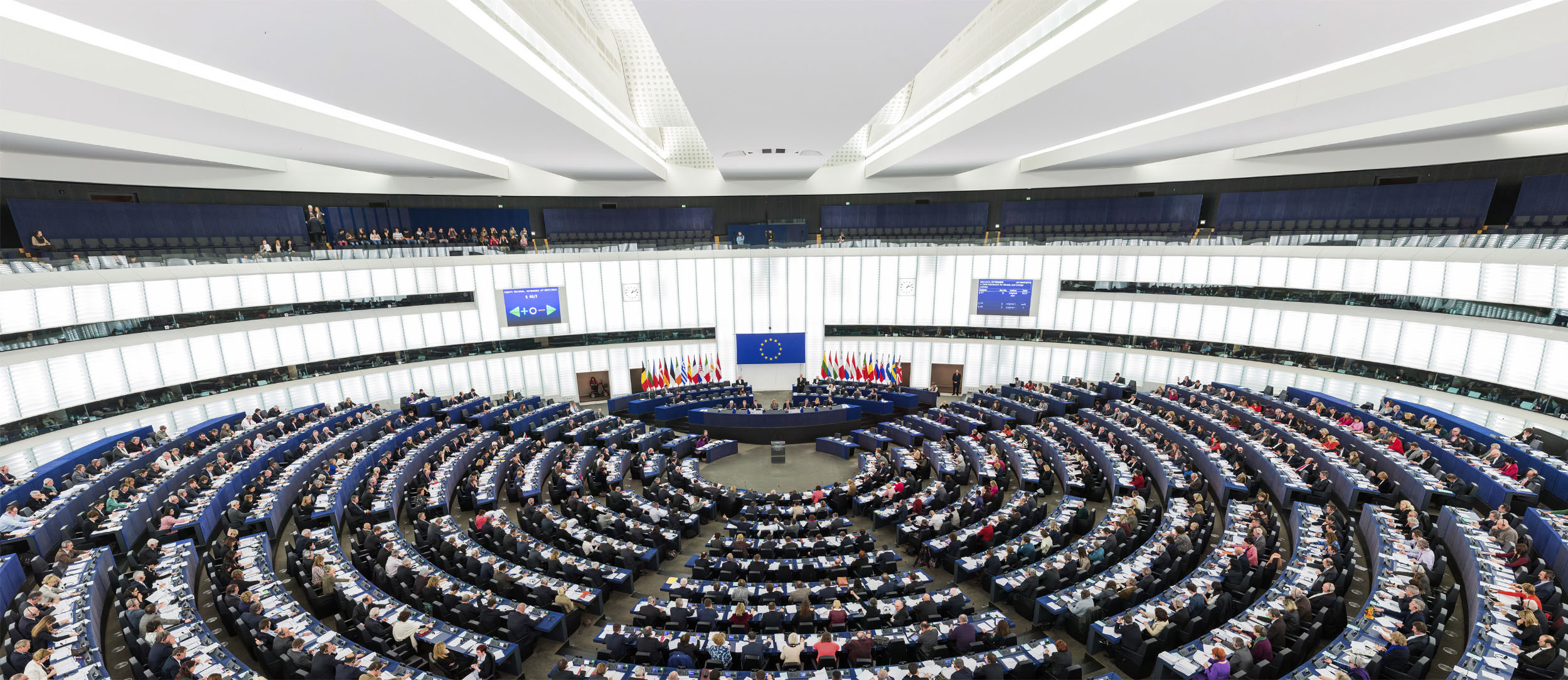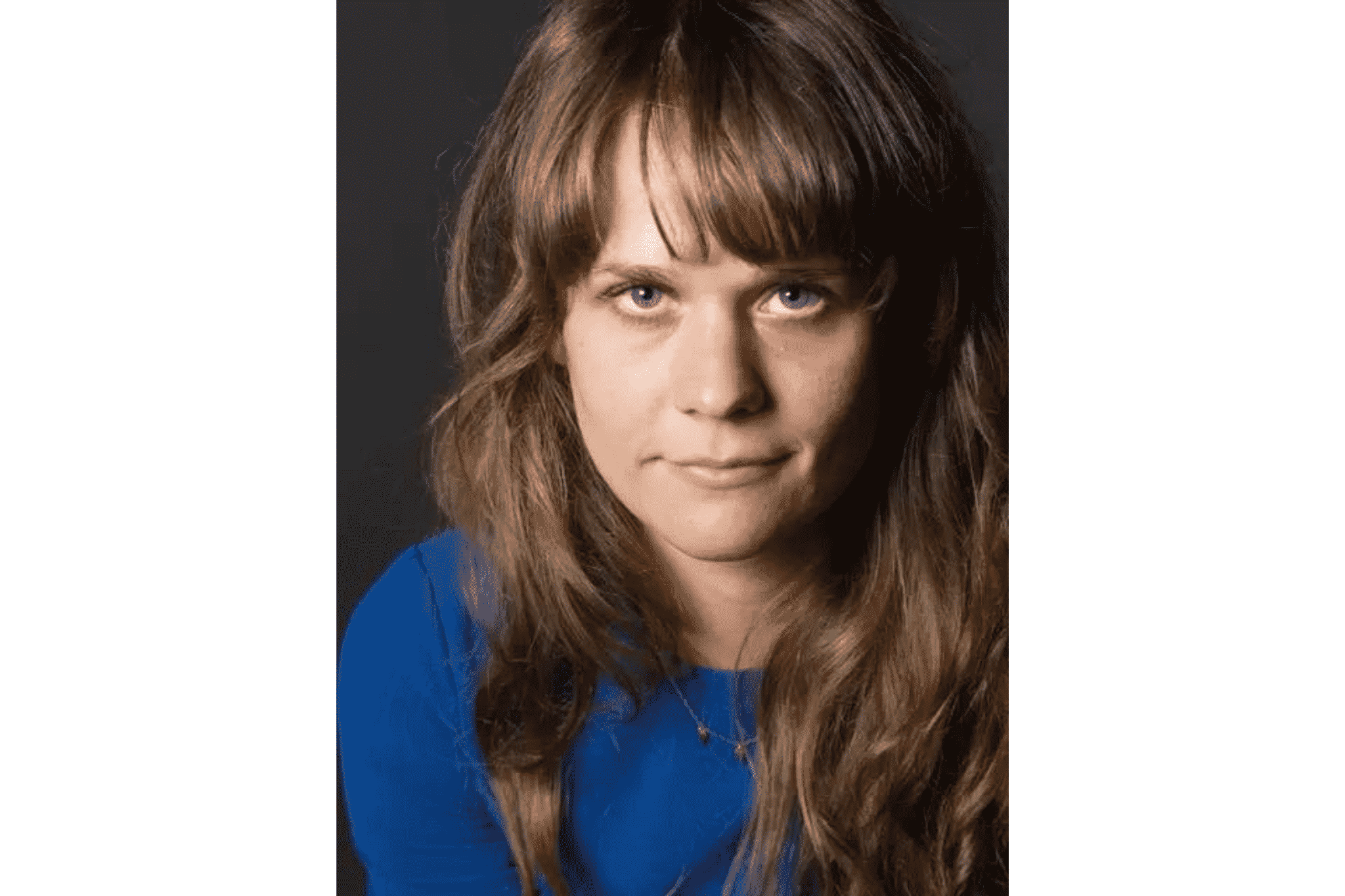DRAFT UM in the world
The European University of the Netherlands
Internationalisation is central to Maastricht University’s identity. As the European University of the Netherlands, our conviction is that the greatest societal problems can only be solved by global cooperation and engagement. UM acts as a unique knowledge hub, living lab and centre of expertise for our country within Europe and beyond. This international identity integrates an intercultural, global dimension into the university’s education, research and services to society. It affects all our activities and has allowed us to grow into a regional engine for economic and socio-cultural development.
We’ve welcomed people from all over the world to work, study and help us build a better world. We invite you to join us in Maastricht, in the heart of Europe, to experience our inclusive and interconnected international community where cultures, perspectives and ideas come together. Jump to:
Internationalisation in education
Partnerships & global outlook
Research devoted to improving the world
Quality international education
International community & cross-border mobility
Internationalisation is central to Maastricht University’s identity. As the European University of the Netherlands, our conviction is that the greatest societal problems can only be solved by global cooperation and engagement. UM acts as a unique knowledge hub, living lab and centre of expertise for our country within Europe and beyond. This international identity integrates an intercultural, global dimension into the university’s education, research and services to society. It affects all our activities and has allowed us to grow into a regional engine for economic and socio-cultural development.
We’ve welcomed people from all over the world to work, study and help us build a better world. We invite you to join us in Maastricht, in the heart of Europe, to experience our inclusive and interconnected international community where cultures, perspectives and ideas come together. Jump to:
Internationalisation in education
Partnerships & global outlook
Research devoted to improving the world
Quality international education
International community & cross-border mobility
Fast facts
- 50% students & 40% staff from abroad (100+ countries)
- almost 40% of our students study abroad
- Certificate for Quality in Internationalisation (CeQuInt)
- 400+ international partnerships
UM Strategic Programme 2022-2026

Maastricht University is working to develop and perfect the ‘International Classroom’, which focuses on the UNESCO concept of Global Citizenship Education. With more than 50% of our students and over 40% of our academic staff coming from outside the Netherlands, representing more than 100 different countries, we’re working to make our differences in background, culture, nationality and ethnicity among our students and staff into our greatest strength.
This is reinforced by UM’s use of the Problem-Based Learning (PBL) system, where small groups of students cooperate to confront problems, set learning goals and work together to construct their education. In this way, students are acquainted with different perspectives that enhance the quality of learning and discussion.
As a research university, our PBL method incorporates and encourages research skills at every level of education, from bachelor's onwards, and this is brought forward into our substantial research community.
UM's three pillars of international education
An international education laboratory
UM is investing in education innovation
But we are not resting on our laurels. Global developments such as emerging technologies, internationalisation and changing dynamics in the labour market alter the way students think and learn.
UM has created the International Classroom Task Force (ICTF), a group of education experts who share best practices and experiences from across disciplines and faculties. This is taking place at UM's own Institute for Education Innovation (EDLAB), which is also further researching and developing the Problem-Based Learning method at UM, Global Citizenship Education and more.

Read more about these and other education projects at EDLAB's website
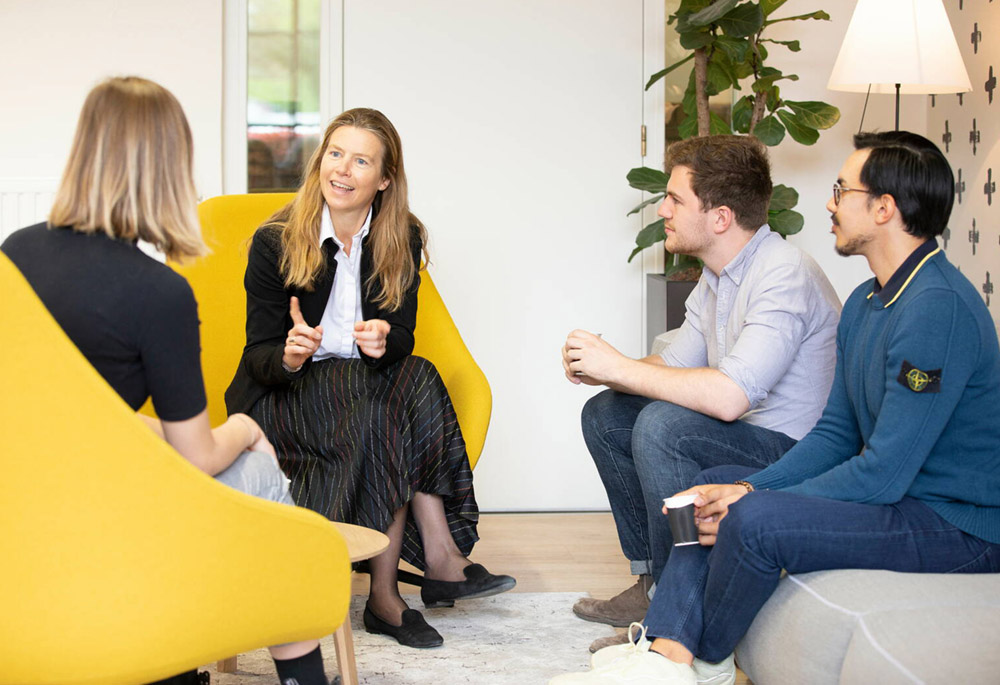
We bring the world into our classrooms
The majority of educational programmes at Maastricht University are taught in English, making them accessible to international students from all over the world. Many of our programmes also have an international or European focus, and all of our programmes include international issues and perspectives. We also offer more than 20 joint and double degrees as well as a variety of exchange and preparatory programmes.
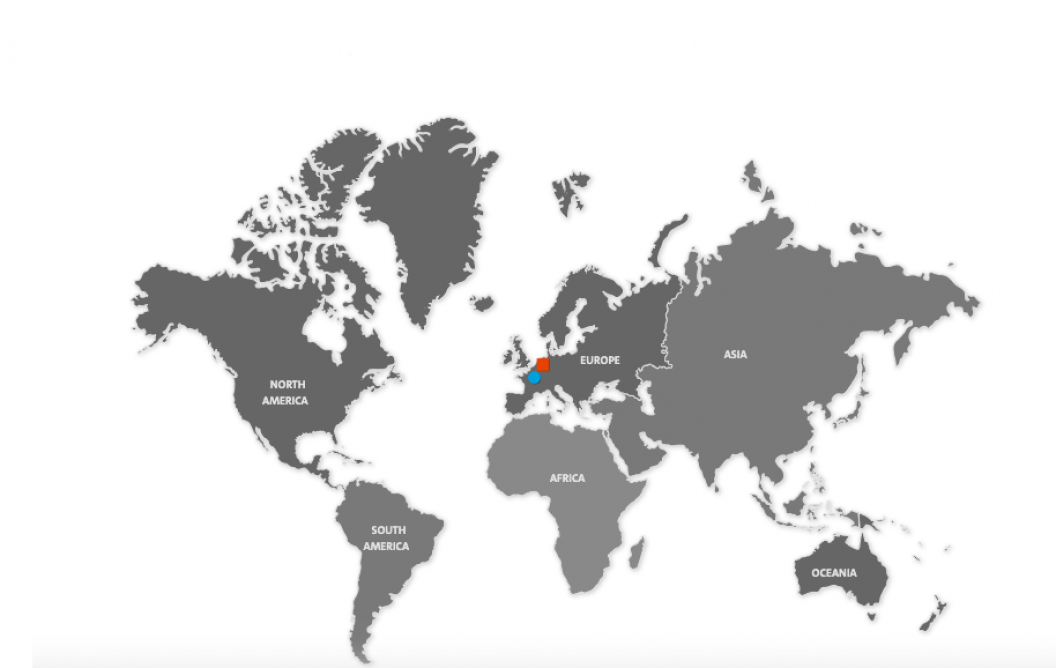
Click for UM statistics on students, PhD candidates, alumni and international partnerships by continent.
Maastricht University (UM) is located in the Netherlands, but we work across the globe. At UM, we're constantly seeking new opportunities to collaborate internationally, and we're intensifying collaborations with our current partners in the Netherlands, Europe and abroad. UM has cooperation agreements with nearly 400 partners across the world.
As UM is in Maastricht at the centre of an EU border region inhabited by 3.9 million people, we also collaborate with universities nearby in Aachen, Hasselt, Heerlen and others. And UM has dozens of research centres which provide our students and staff with many opportunities for personal and professional development both in Maastricht and abroad.
UM’s Strategic Programme for 2022-2026, ‘The European university of the Netherlands’, expands the international scope of UM’s education and research, addressing the question, ‘What does Europe mean to the world and what does the world mean to Europe?’ This is applicable in domains varying from law and health care to politics, the arts, business and culture.
Re-imagining the future of Europe
UM has expanded its commitment to European, cross-border and international identity by investing in exchange programmes, campuses, research centres and international networks. Many of our collaborations focus on Europe and UM’s contributions to European and cross-border issues, such as:
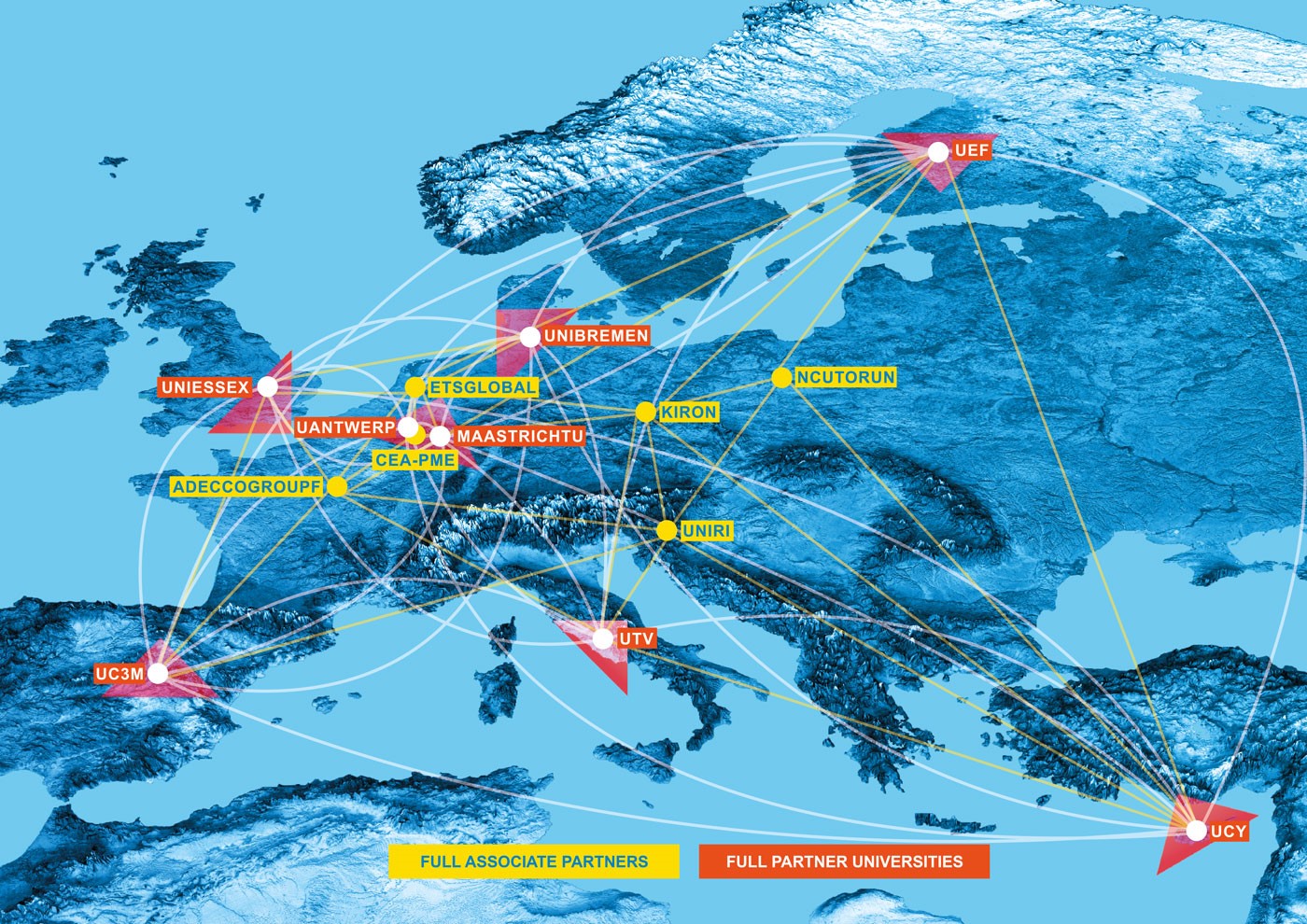
International networks & outreach
Young Universities for the Future of Europe
Young Universities for the Future of Europe is one of 17 alliances of European universities selected by the European Commission to develop and implement the European University. YUFE includes nine young research-intensive universities and two non-academic partners located all across Europe. YUFE European University will strengthen our collective identity and contribute to a more cohesive European society.
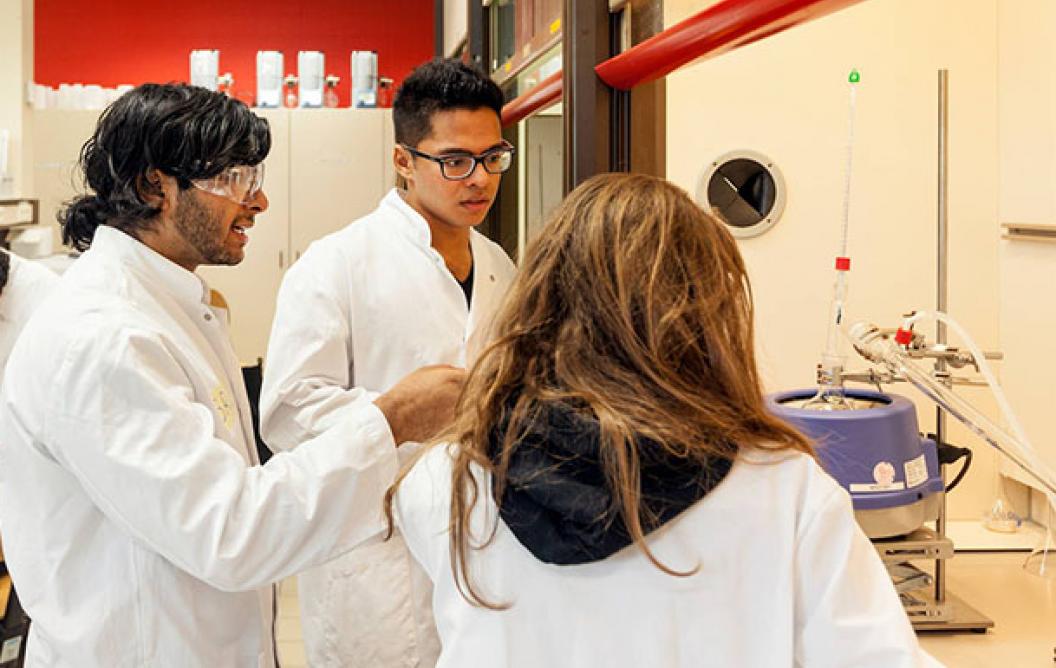
Maastricht University research is carried out in an international context on topics of global importance. Collaboration with other universities and research institutes in the region and beyond is a vital element of UM research.
As the European University of the Netherlands, research on European affairs is integral to the efforts at our faculties. UM attracts students and academics looking to conduct research in an inclusive, internationally-oriented setting. Together our experts work to find new solutions for challenges facing Europe and the world in a UM-wide interdisciplinary research agenda.
Rooted in the wider society, we proactively transfer our knowledge to citizens, policymakers, politicians, youth, journalists, NGO’s and others. UM strives to encourage research that is socially relevant, making a difference at the local, national, European and global levels.
Learn more about research at UM
Regional and European research institutes
Maastricht University research is carried out in an international context on topics of global relevance. Collaboration with other universities and research institutes in the region and beyond is a vital element of UM research. In addition to the prestigious Institute for Transnational and Euregional cross border cooperation (ITEM) mentioned above, UM has established international research centres including:
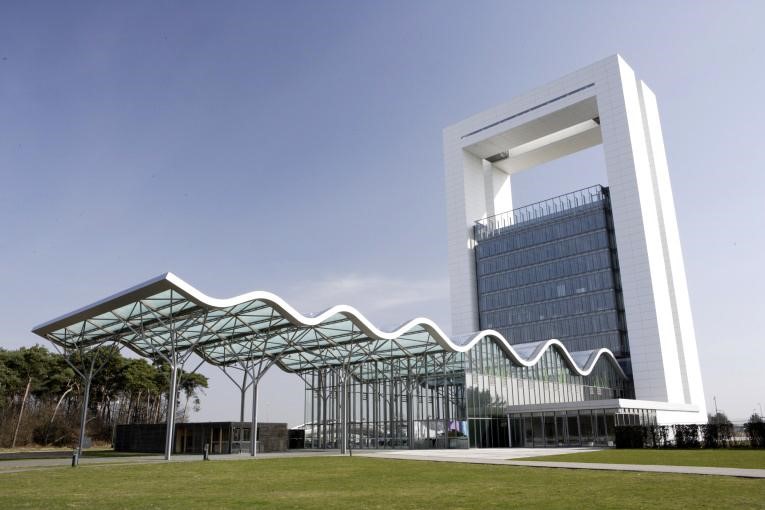

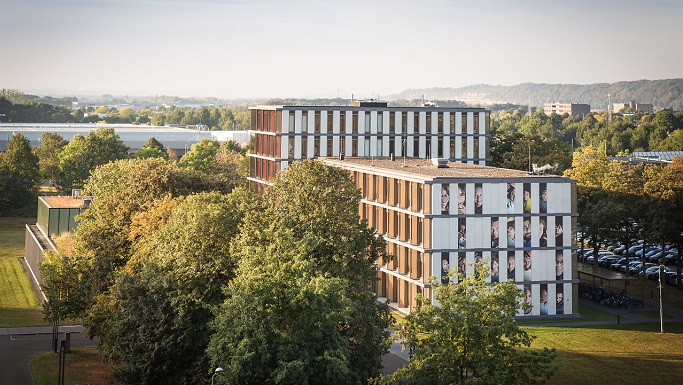
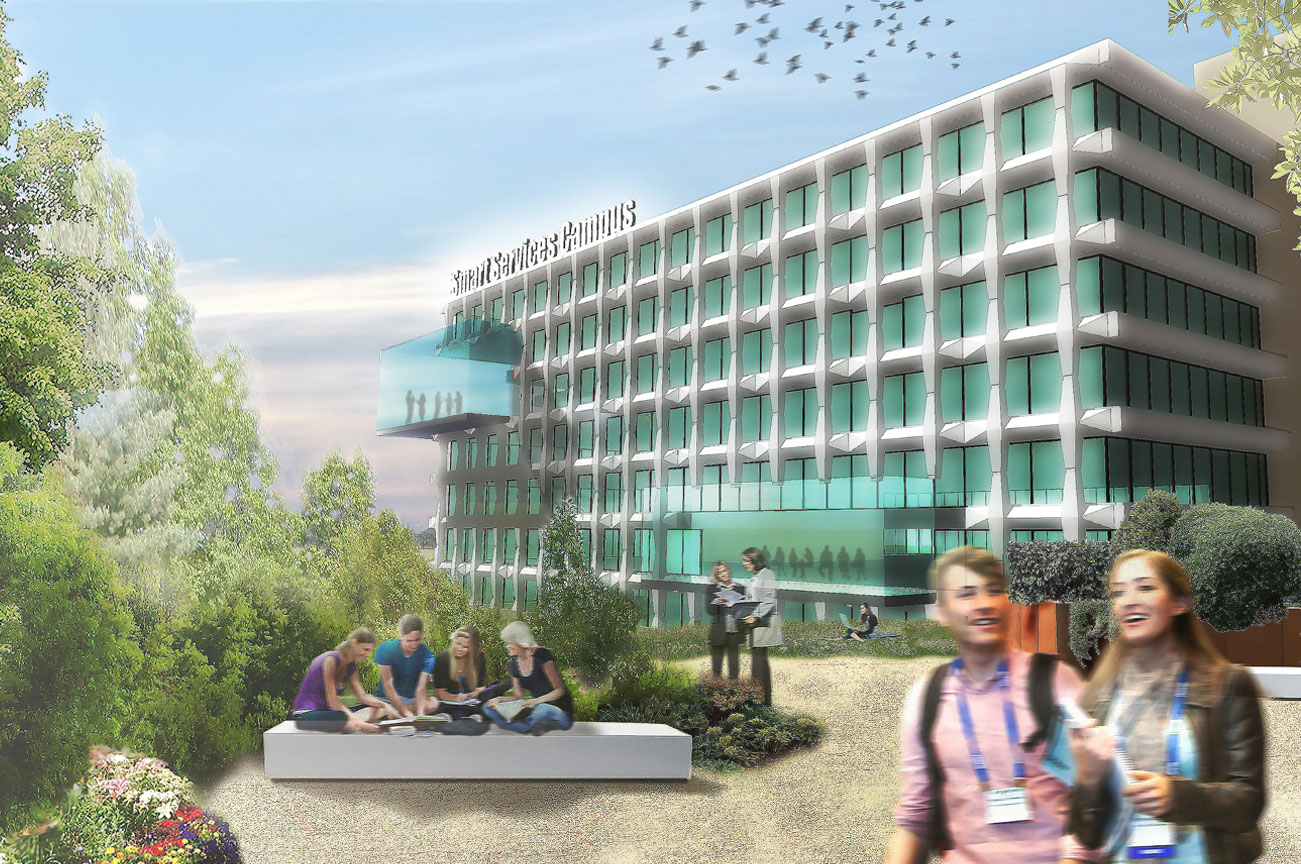
Campus Greenport Venlo
Innovations in healthy and safe nutrition, future farming and biocircular economy. Developments in agri food that make the world a healthier and more sustainable place.
Chemelot Campus
Performance materials, sustainable processes and biomedical solutions for a more sustainable world: the ideal innovation centre for materials science.
Maastricht Health Campus
Innovations in healthcare, medicine and bio-sciences. Knowledge applied to create products and services that contribute to better public health.
Smart Services Campus
A community of entrepreneurs, researchers and students together developing new smart digital services to improve the quality of life.
Euregional research and technology development
Four Brightlands Open-Innovation Campuses
UM is an essential part of the Brightlands international, open-innovation community spread over four campuses in the region. Every day 30,000 entrepreneurs, researchers and students contribute to the fields of materials, biomedical solutions, sustainable chemistry processes, health, agri food, data science and smart digital services.
Learn more about Brightlands and follow their new podcast series!
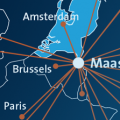
International fairs
Our staff members regularly participate in fairs abroad.
Our new activities will be published as soon as possible!
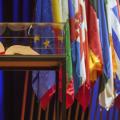
Project “Maastricht, Working on Europe (MWoE)”
MWoE aims to encourage multi-disciplinary Europe-focused research with societal impact.

Virtual Open Day
For international students who can't make it to Maastricht for an Open Day, the Virtual Open Day provides videos on all programmes and locations as well as various aspects of student life.

Hire our graduates
Our globally oriented graduates have experience working in groups with people from different cultural backgrounds and approaching issues from a variety of perspectives.

International staff
39% of our academic staff and 8% of our support staff come from abroad. Combined with more than half of our students coming from abroad, this makes the atmosphere at the university truly international.
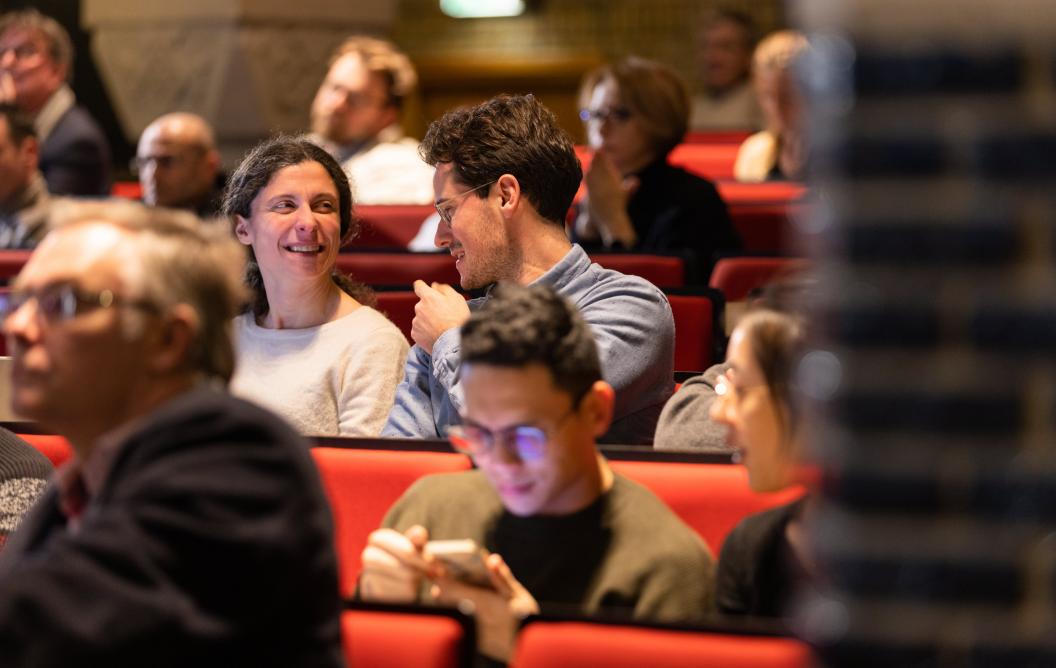
Our quality education is reflected in the rankings
- 13 of our master's programmes perform exceptionally well and are valued well above the national average (Keuzegids Masters 2020)
- 12 of our bachelor's programmes are ranked in the national top 3 (Keuzegids Universiteiten 2020)
- University College Maastricht and University College Venlo have been awarded the 'Topopleiding' [top education] quality seal (Keuzegids Universiteiten 2020)
- 3 UM programmes have earned a gold medal for maintaining their presence in the top 3 for three consecutive years: the bachelor's programmes at University College Maastricht and University College Venlo, and the master's programme Learning and Development in Organisations (Elsevier Magazine)
National Student Survey 2019
| UM score | National average | |
| Internationalisation | 3.80 | 3.41 |
| Preparation for job market | 3.50 | 3.31 |
| Group size | 4.30 | 4.07 |
| General skills | 4.13 | 3.93 |
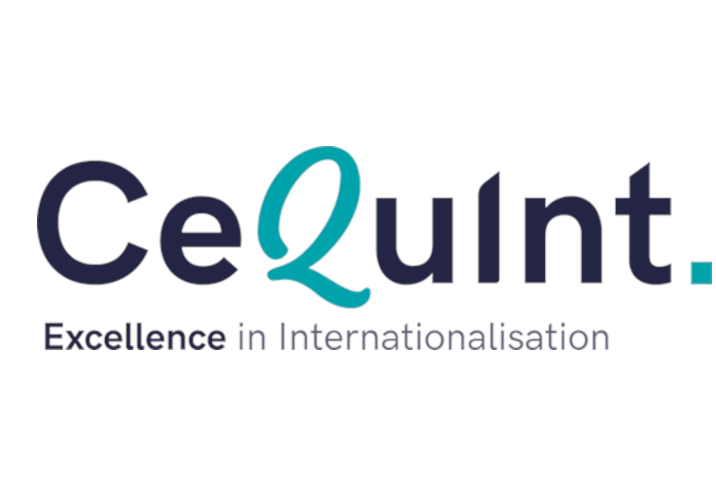
Honoured by the ECA for internationalisation
Having worked on internationalisation for 30 years, UM is honoured – along with Wageningen – to be one of only two Dutch universities to have been awarded the Certificate for Quality in Internationalisation (CeQuInt) by the European Consortium for Accreditation in Higher Education (ECA).
Read more about the CeQuint award
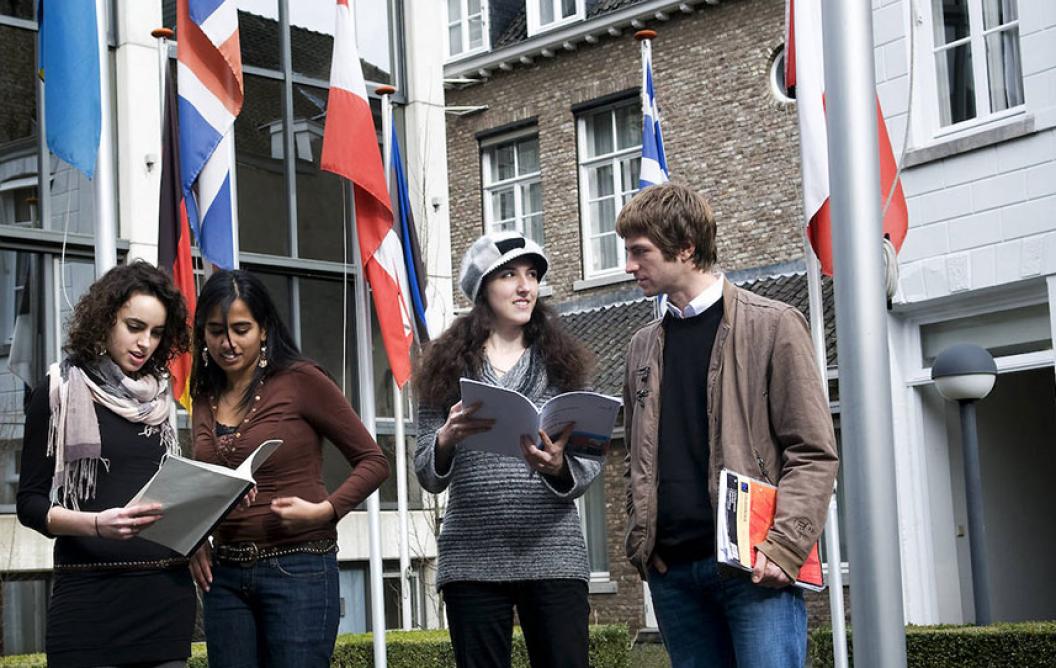
Embracing Global Citizenship
We believe it is essential to create a welcoming atmosphere and to rapidly integrate new people into our international community. We do this through targeted social activities, buddy programmes and additional services such as visa support and language courses.
We also work to promote the cross-border mobility of our students and staff by encouraging participation in exchange programmes with our partner universities. Many of our alumni work abroad, and we do our best to keep them connected with the UM community.
More about our services for international & exchange students
More about our international staff & cross-border mobility
More about our alumni in the world
UM language policy
Language is the key to the heart and soul of a people
UM is a Dutch public university where the official teaching languages are Dutch and English, and UM professors score the highest* on English proficiency of all Dutch universities. But due to its international character and its location in a Euregion border area, a multitude of languages are spoken at all levels. UM has an integrative and pragmatic approach to language, regarding it as an instrument to acquire and share knowledge and the base of intercultural understanding and labour market participation.
Many students at UM take part in both free and paid language courses, and UM is participating in an increasing number of language learning projects and initiatives, bringing in new perspectives and training opportunities. As the context of language usage is continuously evolving, UM is committed to maintain and monitor language levels and further enhance opportunities for language learning across our community.
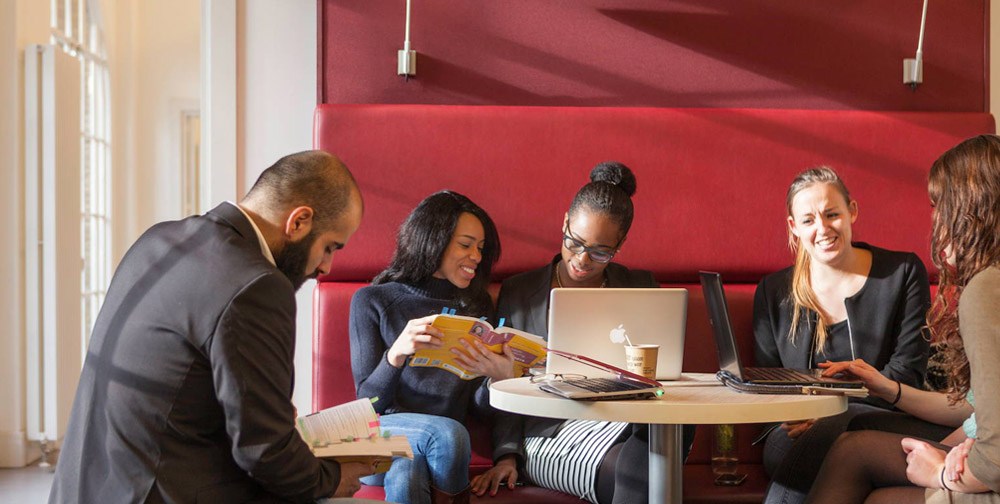
UM actively encourages multilingualism and new language learning for students, employees, alumni and the wider UM community as part of its concept for lifelong learning.
The rules for the usage of language at UM can be found in the Code of Conduct for Language.
News
-
On Wednesday, May 24, 2023, the latest of our Globalization and Law Network Seminars took place at the Law Faculty. Joining us online, Dr. Signe Rehling Larsen, from University of Oxford, talked about her recent publication and current research on Empire and Public law and more specifically, the...
-
Recently, UM’s president Rianne Letschert wrote an opinion piece for TH&MA. The journal informs managers, directors and executives at universities and colleges of higher education in both Flanders and the Netherlands about the latest trends in higher education. You can read the opinion piece here....
-
Herco Fonteijn received €250,000 from the NWO to advance global citizenship education.
-
The York Maastricht partnership (YMP) has announced its first round of funding, supporting £2m (€2.2m) of research collaborations across nine distinct projects – including initiatives to tackle serious health problems and solutions to global sustainability.
-
UM-led Young Universities for the Future of Europe (YUFE) is one of just 12 alliances of European universities selected by the European Commission to develop and implement the first models for a European University.
